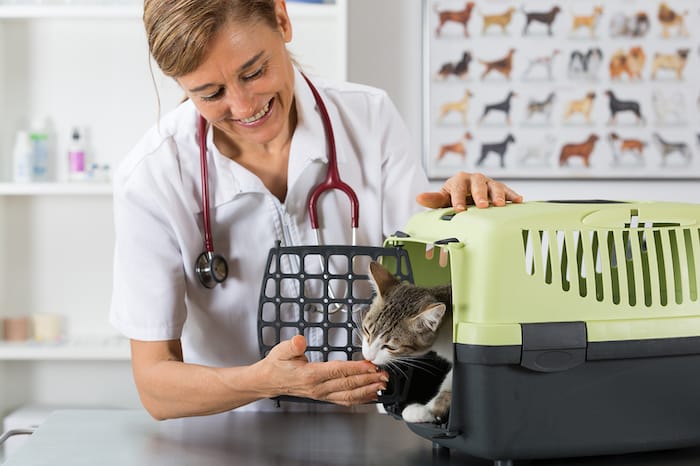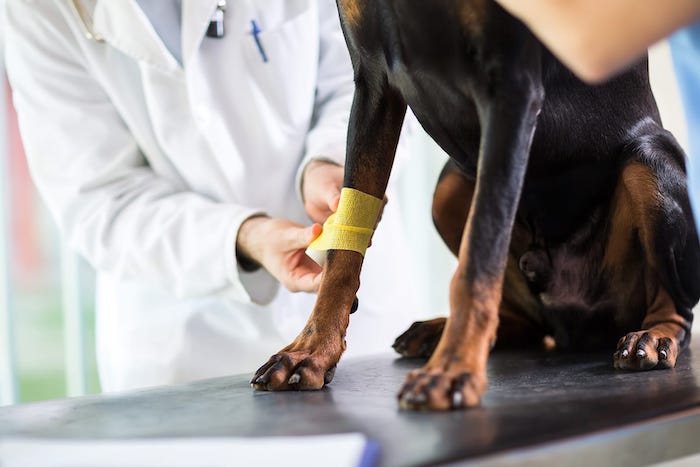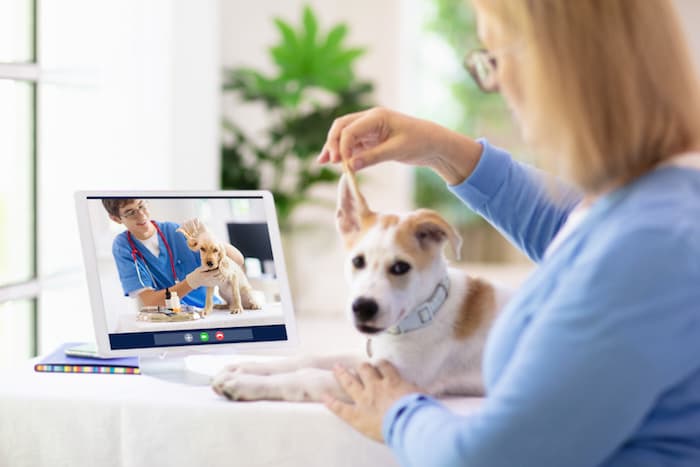A veterinarian’s job entails more than just diagnosing and treating animals; it also involves using various tools and equipment to help keep our beloved pets healthy and safe. As a result, veterinarians must be well-equipped with the right tools and knowledge to provide the best care possible. In this article, we will discuss four essential tools every veterinarian needs to be successful in their field. Keep reading to learn more.

Anesthesia Monitoring Tools
Anesthesia is often essential when performing surgeries or other invasive procedures on animals. It’s crucial for veterinarians to closely monitor an animal’s vital signs while under anesthesia to ensure their safety and prevent complications. One essential tool for doing so is a veterinary anesthesia monitoring sheet, which allows veterinarians to log an animal’s blood pressure, heart rate, body temperature, and other vital information regularly during the procedure.
Modern anesthesia monitoring devices can automatically track these vitals, enabling veterinarians to focus better on the procedure. These devices can also alert the veterinarian to any abnormalities, allowing them to intervene and address issues before they become life-threatening promptly.
When selecting anesthesia monitoring equipment, veterinarians should consider factors such as ease of use, accuracy of readings, and versatility in terms of compatibility with various species and sizes of animals. The right anesthesia monitoring tools can significantly improve the safety and outcome of anesthetic procedures in veterinary practice.

Diagnostic Equipment
Accurate diagnosis is crucial for any veterinarian, as it enables them to determine the most effective treatment plan for an animal in need. Diagnostic equipment, such as X-ray machines, ultrasound machines, and endoscopes, are essential in assessing an animal’s internal condition. These machines allow veterinarians to examine the skeletal system, soft tissue, and internal organs without causing unnecessary stress or harm to the animal.
Moreover, diagnostic tools help veterinarians detect abnormalities that may be invisible to the naked eye, such as tumors, blockages, and fractures. With the help of high-quality images, veterinarians can quickly and efficiently diagnose a wide range of conditions, improving the chances of a successful recovery for the animal. Timely diagnosis can also result in lower healthcare costs for the pet owner, as early intervention can prevent the need for more expensive and invasive treatments later on.
Some diagnostic equipment comes as a holistic suite, combining multiple functionalities into one versatile device, whereas others are specialized to cater to specific diagnostic needs. By familiarizing themselves with the features and benefits of various diagnostic tools, veterinarians can pinpoint which devices would be the most valuable additions to their practice.
Surgical Instruments
Surgeries are essential to veterinary practice and may be necessary for procedures ranging from routine spay and neuter operations to life-saving emergency surgeries. Surgical instruments, such as scalpels, forceps, and sutures, are integral to any veterinarian’s toolkit. High-quality surgical instruments ensure precision, efficiency, and safety during surgical procedures.
When selecting surgical instruments, veterinarians should consider factors such as durability, sharpness, and ease of sterilization. Veterinarians should also be familiar with various types of surgical instruments and their specific uses, ensuring they have the right tools for every procedure.
A diverse array of surgical instruments can better prepare veterinarians for a wide range of scenarios, ultimately leading to better patient outcomes and improved overall care.

Veterinary Software
In today’s digital age, efficient and reliable veterinary software is essential for streamlining and improving daily operations within a veterinary practice. Veterinary software can facilitate appointment scheduling, recordkeeping, inventory management, and billing, making veterinarians’ jobs more manageable and allowing them to focus more on patient care.
Investing in a powerful and user-friendly veterinary software solution can not only enhance the overall efficiency of veterinary practice but can also improve the experience for both veterinarians and their clients, creating a more seamless and enjoyable experience for all involved.
Diagnostic equipment, anesthesia monitoring tools, surgical instruments, and veterinary software are essential tools every veterinarian needs to navigate their profession successfully. By investing in high-quality equipment and staying up-to-date on advancements in veterinary technology, veterinarians can provide the best possible care for their patients while optimizing their day-to-day workflow.
Related Reading
